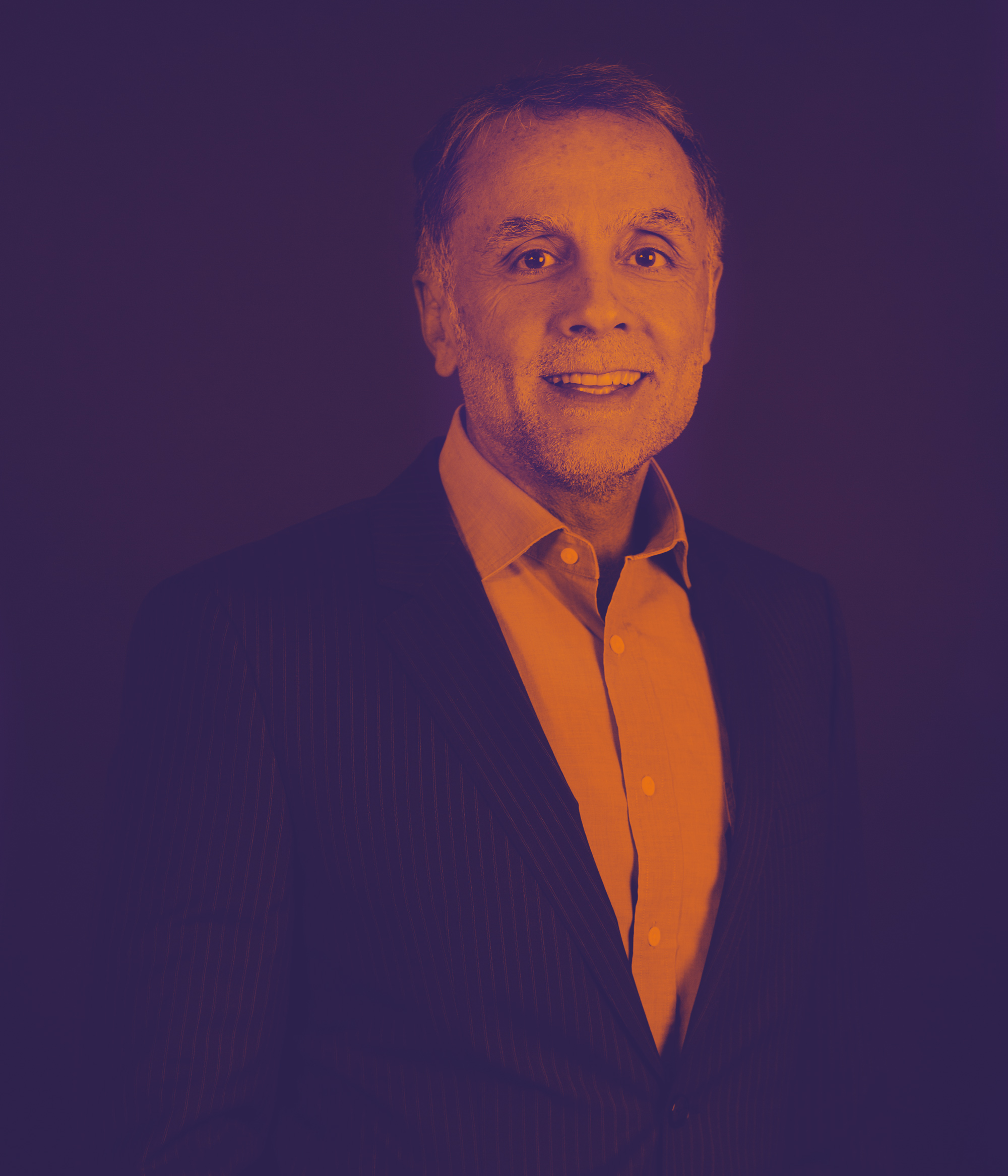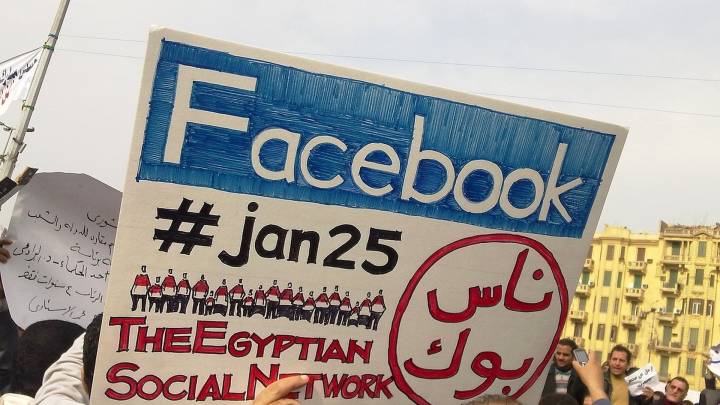With the Middle East business landscape being steadily transformed by technology, tech start-ups are an opportunity for a new generation to empower itself through innovation says Fadi Ghandour.
Today’s Middle East and North Africa (MENA) revolutionary may not be a street protestor or political agitator, but a youngster learning code in their bedroom or establishing a tech start-up while at university. At least that’s the view of well-known entrepreneur and serial tech funder Fadi Ghandour. As one of the region’s most prominent tech investors, he’s witnessed a wave of new internet companies that are not only transforming the Arab world’s relationship with goods and services, but also promise to turn the region’s business landscape on its head.
Globally the potential of the Internet is unlimited, but prospects for its impact are even greater in a region hungry for change. For youngsters, who face unwelcoming job markets in many countries in MENA, the internet has stripped away many of the traditional barriers to establishing a business. In the virtual world, space is practically free, and permission-less innovation is the rule of the day, notes Ghandour. These are powerful ideas in a region where young entrepreneurs looking to be economically self-dependent have long faced hurdles; Tunisian street vendor Mohamed Bouazizi, whose self-immolation was the spark for the Arab uprisings in 2011, serves as perhaps the most potent example.
“People don’t want to protest on the streets, they are protesting by building businesses that are disrupting traditional businesses so that they become an empowered generation. Ghandour himself is well aware of the myriad difficulties for start-ups in the region, having co-founded pioneering logistics company Aramex in Amman in 1982. The company operated on a no-asset model, and banks were reluctant to lend to a business that had little in the way of collateral. Managing cash flow was a constant struggle, and–in what Ghandour might today term a ‘manoeuvre’–in 1997, Aramex became the first Arab company to list on the NASDAQ in New York. It was a move made in a bid to raise capital, but its chief benefit was sudden recognition of the company back home. Later delisted, it went private again before it listed on the Dubai exchange, and today has market capitalisation around $1.3bn. But in 2012, Ghandour stepped down from his position as CEO–which he had held for 30 years–to focus full time on his new passion: entrepreneurs and start-ups in the tech sector.
A Maestro Investor
Since entering the venture capital field he’s proven to have a deft touch. Ghandour was a founding investor in Maktoob, the company that first brought Arab language emailing to the region and was later sold to Yahoo! in 2009 for $142m. It was the region’s first high profile success story. In 2012, his Mena Venture Investments (MVI) fund and a US-based partner invested $44m in Turkish delivery company Yemeksepeti, which in 2015 was acquired by Berlin-based Delivery Hero for $589 million. MVI has been “very aggressive in seed-stage” and now has around 85 companies in its portfolio, says Ghandour.
There have been significant improvements in availability of funding, perhaps no surprise given that the number of successful companies is also growing. Ghandour says he’s already seen “seven or eight” deals for companies this year [2015] that are raising over $50m, at valuations, which are above $100m. “This number did not exist last year. This year we have already had several.” He suggests that by 2017 the number of Arab tech companies valuing at over $100m will be in the 10s, and by 2018 that number will be even higher. “Whoever did not invest in this industry is somebody who is not paying attention today.”
Ghandour has unbridled optimism about the MENA tech sector’s prospects for growth. “There is going to be an absolute acceleration and explosion in tech companies across the region. You will see them in the hundreds popping up. Lots of them will fail, lots of them will succeed, and lots of traditional businesses are going to start worrying about being disrupted.”
Another development was the launch in 2015 of a $75m regional growth stage venture fund by Wamda Capital, backed by groups including the International Finance Corporation (IFC), Abraaj, Crescent Enterprises and Zain Group. The fund will target high growth tech start-ups businesses and provide seed and early stage funding, all the way up to $5m per business, as well as providing businesses with strategy and partnership support. The fund addresses a recognised gap in the funding market–according to a 2014 research from Wamda Capital, 76 per cent of investments in Lebanon, Jordan and Egypt, were below $500,000 and 68 per cent of companies never received any follow-on funding–and is designed to fund scalable companies that have prospects of becoming “regional and global innovators.”
Innovation is about need, and solving a pain. Pain in today’s world, some of it is global, a lot of it is micro, local, hyper-local.One of the first companies Wamda’s new fund invested in was Jamalon, the largest online book seller in the region, which is “recreating the way Arabs have access to books.” It’s a business modeled on a well-known overseas major who isn’t present in the MENA region. As Ghandour notes, there is “nothing innovative” about selling books online. “But making books available online to Arabs, in Arabic, has not happened the way before that Jamalon is making it happen.”
It’s a business that illustrates one of Ghandour’s favourite mantras for the tech sector: the rationale of a ‘copy, paste and innovate,’ and the need for the sector to focus on the “quick wins.” Another example is Careem, an Uber-style transportation app which launched in the region before Uber did. But it added one feature that customised it to the region, namely the ability to pay with cash, needed due to the low usage of credit cards in the region. “Innovation is about need, and solving a pain. Pain in today’s world, some of it is global, a lot of it is micro, local, hyper-local.”
While Ghandour says he would like to see a business from the region go global, the current need is for companies to copy successful overseas models and adapt them for the region, adding the “local flavour” required for it to work, the quick wins that bring services to local neighbourhoods.
Over the years, his championing of ‘copy, paste and innovate’ has been questioned. But for Ghandour, it’s a view that is informed by his idea of human progress as a common endeavour. “Every single business in the world is ‘copy, past and innovate.’ This is not unique to our region. I would like to see one business that claims it did not sit on the shoulders of a business or idea or algorithm that had happened before it.”
Home-grown Challenges
The biggest challenges for tech companies in MENA are the universal ones: how to scale, how to get traction and how to market the product. But on top of that there are some unique home-grown challenges, such as limited finance available for growth companies, as well as the significant bureaucratic challenge represented by MENA’s 22 fragmented markets. That is one significant difference between a company operating in Silicon Valley and one in the Middle East: a US-based company has immediate access to a massive market with high purchasing power, while start-ups in MENA often face hurdles to move into additional markets, and in many purchasing power is low.
Millions of ideas go through my brain as I watch people talk to me. I just go out and do.“Even though businesses are scaling, manoeuvring and finding ways to expand their presence across markets, it is so much more difficult [than in the US]. The entrepreneur has to worry about things they shouldn’t have to worry about,” says Ghandour. “Unless we are able to open up and ease the movement of businesses from one country to another, you are not going to be able to get the quick scaling of companies.”
This effect is pronounced for e-commerce companies. Though hundreds of millions of dollars have been invested in the sector, bureaucratic challenges are inhibiting growth. It’s a factor too in internet commerce even where there is no physical movement of goods. “If you create a payment system there is no centralised regulatory environment, you have to meet regulations from various central banks, and re-register to get permissions for each market.”
But it is e-commerce, which Ghandour calls “the heart of the story,” that threatens to cause the biggest disruption of traditional businesses in the MENA region. Across the world, traditional store-front businesses are starting to appear like dinosaurs: large, lumbering, and at danger of starving unless they adapt.
The prospects of disruption are particularly acute in MENA, where the traditional economies consist of large, capital-rich conglomerates that make their profits through 20th century businesses like real estate, tourism, construction, services and lucrative state contracts. Beneath these sit a layer of small, relatively unproductive businesses, which lack the funding or connections to grow into larger enterprises, a move that would challenge the bigger corporates and ultimately make them more efficient.
The dominant system of country-exclusive distribution licences also allows companies to consolidate business empires around the sale of key brands; many of these licences were acquired by entrepreneurs in the 1950s. “Traditional businesses have to start worrying,” warns Ghandour. “Representation businesses or exclusive distribution businesses in particular have to start worrying. Why would a manufacturer or OEM think that they cannot go direct to the client today? The disintermediation– which started a long time ago because of the internet–is going to show its presence very strongly in the market.”
Conglomerates may try to come in on the ground floor of the tech revolution, but it may not be that easy. “Those that are in the retail business all say they want to do e-commerce,” says Ghandour. “But e-commerce is not just a policy. It requires a completely different mind-set, a completely different way of doing business.”
Disruptions, Small and Large
Disruption of traditional businesses in the Middle East is about more than just economics. It’s also a disruption of the social and even political norms. The sight of a young entrepreneur suddenly catapulted into great wealth as a result of home-grown innovation is a revolutionary narrative in a region where wealth has traditionally been transferred inter-generationally and maintained within families (according to reports, roughly $1 trillion of family-business assets are expected to be passed down to the next generation within five to ten years in the Gulf alone), or has been obtained through the slow accumulation of assets in a traditional business.
Massive growth by tech companies will be more politically transformational than people protesting in the streets, believes Ghandour. “People don’t want to protest on the streets, they are protesting by building businesses that are disrupting traditional businesses so that they become an empowered generation.”
While the idea of the self-made tech millionaire or billionaire has become almost passé in the US (it stands arguably as the current mode of social mobility guaranteed by the American Dream), in the Middle East it remains an as-yet hardly visible force for change. Ghandour cites the figure of Khaled Jabasini, who declared himself to be the first Arab internet millionaire after selling 65 per cent of his online advertising business to Maktoob in 2007 after only six months of operation. In the last decade, Arab tech entrepreneurs have been able to bank six figure sums after acquisitions, “individuals who never thought they would have more than $1,000 in their bank account.”
There’s more to come. “There are a lot of young entrepreneurs fresh out of college building businesses that will value them in the 10s of millions of dollars, and they never thought that they would be in this position. What they do with their wealth, and how they act on it, is something to be watched.”
Ghandour is optimistic: he points to the actions of Yemeksepeti CEO Nevzat Aydın, following the company’s acquisition as a powerful example. Aydın shared $27 million of the money earned by the acquisition with 114 of their employees, bonuses worth $237,000 on average.
“Look at the power of that,” exclaims Ghandour. “We will have internet and digital world affluence that we’ve never seen before, the democratisation of affluence in the region. It will have a substantial societal effect which we haven’t figured out yet.”
One effect may be social utility: Younger entrepreneurs are much more in-tune with the problems of their community than the older generation, says Ghandour. “Even if they have lesser means, they are much more forthcoming about addressing the issues that their communities live in, because they have lived through it themselves. They are much more in touch.”
Ghandour himself is an active force when it comes to philanthropy in the Middle East. Notable is his Ruwwad Al Tanmeya programme, which provides scholarship support to around 450 students every year in Jordan, Lebanon, Egypt and Palestine; in return, each is required to volunteer four hours a week in their community, whether it’s cleaning streets where the municipality has not done so, or fixing a house for a neighbour who is not able to repair it.
The programme helps those on the margins, people that have been forgotten one way or another, that have not had access to education, says Ghandour. “We’re told that Arabs don’t read, so we have made massive community-based campaigns to have mothers read for their kids–stories that are not in their schooling system. We’ve also gone into schools and communities and address the issue of violence at home, or violence at school, and we get the community to come and talk about it, and find the solution for it, and feel good that it is their own solution, not imposed on them from outside.”
Ask Ghandour where his ideas come from, and he’s quick to say that nothing has been done on his own. “I can be the spokesperson for all these things, but every single thing I did is copy, paste innovate. I’ve had friends, partners, fantastic people. Sometimes I’ve had the idea, or they have come from others.”
He describes the entrepreneurial brain as focused ultimately on actions rather than words. “Millions of ideas go through my brain as I watch people talk to me. I just go out and do. Some of them fail, which you don’t hear about. Some of them are successful, which you hear about. But it is always with people, this is a team communal effort.”
This interview was first published in zenith 2015/4.





